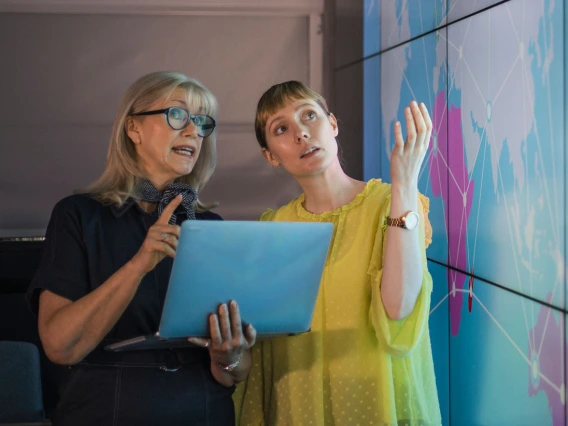Cloud Computing
Undergraduate Certificate
Quick Facts

Top 1%
of all Higher-Ed
Institutions
- Center for World University Rankings, 2024
#1
In Best Value Among
Arizona's Public Universities
- Payscale, 2024
Build a solid foundation in virtualization and cloud technologies that will boost your confidence and enhance your training in the field of cloud computing.
Earning this certificate will equip you with the technical skills to effectively design, operate, maintain and leverage virtualization and cloud technologies. Your advanced skills will support businesses, government and non-governmental organizations making you an asset to any organization.
You will gain hands-on experience in virtualization technologies, general cloud technologies, Microsoft Azure and Amazon Web Services. You will also learn advanced topics such as incident response, defense techniques and penetration testing.
By earning your certificate in cloud computing, you signal to employers that you have dedicated the time and energy necessary to tackle complicated infrastructure issues.
This program serves a diverse student population, training technically-minded students in the nuances of developing, storing, protecting and leveraging the elasticity provided by cloud technologies. The introductory course will provide a baseline in virtualization technologies and an introduction to cloud technologies. Follow-up courses will focus on leading cloud services, as well as discussion of advanced topics on cloud computing.
Students are required to have a fundamental knowledge of networking and basic security concepts.
*Residents of some U.S. Territories may not be eligible. Please see our Eligibility & State Authorization page for more information.
The curriculum for this program includes:
This course is an introduction to virtualization concepts and technologies. It delves into advanced virtualization concepts including containerization, microservices, software-defined architectures, and virtualization security. Topics to be covered include basics of virtual machines, containers and microservices; CPU, memory, storage and network virtualization; paravirtualization, hardware virtualization, and OS-level virtualization (containers); hardware features supporting virtualization and nested virtualization. Actual virtualization software will be used to provide hands-on experience with virtualization.
You will cover the theory and application of cloud computing, including Cloud Computing network design and connectivity, server management, best practices, security, and provider service level agreements. Case studies of industry examples are used as applications to reinforce the discussed theories.
This course will address designing Azure compute infrastructures, including virtual machines, web applications, serverless and microservices. It will address designing effective network implementations in Azure as well as designing data implementations using different data services, relational database storage, and NoSQL storage. It will include practical hands-on experience solving real-world cloud computing problems with Azure.
Address applying Amazon Web Services (AWS) business and technical tools and architecting and designing cloud solutions using AWS. Learn how AWS can help meet compliance, governance and regulatory requirements. It will include practical hands-on experience solving real-world cloud computing problems with AWS.
This course delves into advanced cloud computing concepts including virtualization, containerization, microservices, cloud storage and programming, software-defined architectures (compute, storage and networking), and advanced cloud security. The course also establishes the economic foundations of cloud computing and how to evaluate different cloud service provider offerings.
This course will review cloud concepts, architecture, and design, then proceed to address cloud data security, cloud platform and infrastructure security, cloud application security, cloud security operations, cloud risk management and compliance management. This course leverages cloud computing security guidelines set forth by the International Organization for Standardization (ISO), European Union Agency for Network and Information Security (ENISA), National Institute of Standards and Technology (NIST), and the Cloud Security Alliance (CSA).
Outcomes
Skills
Earning your Undergraduate Certificate in Cloud Computing will build core skills, including:
- Amazon Web Services
- Applying cloud concepts, architecture and design
- Applying industry best practice security controls to a notional or real-world virtualization deployment
- Applying the high-level cloud landscape, architecture and design principles
- Assessing virtualization architectures for costs versus benefits and return on investment
- Critically assessing key components of cloud security
- Developing a cloud security architecture
- Explaining cloud computing concepts to business stakeholders
- General cloud technologies
- Identifying and assessing issues associated with cloud legal, risk and compliance
- Implementing techniques, design patterns and industry best practices
- Microsoft Azure
- Virtualization technologies
Potential Career Paths
Graduates of the Undergraduate Certificate in Cloud Computing program will be prepared to pursue careers in the following positions:











